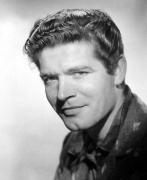|
|
||||||||||||||||||||||||
 |
Featured person
Recently added |
Josias Cunningham (1934 - 2000): |
||||||||||||||||||||||
Josias Cunningham was a stockbroker and farmer, and prominent though, to the wider public, relatively little-known member of the Ulster Unionist Party.
Cunningham came from a prominent family, who owned the Northern Whig newspaper, and the prominent firm of Cunningham and Coates, founded in 1843. The family were not strangers to politics. In 1784, when St Mary's Chapel, the first Roman Catholic church in Belfast was consecrated, the first Belfast Volunteer Company, under the command of Captain Waddell Cunningham, formed a guard of honour. Later, the Cunninghams were strong supporters of the movement against Home Rule.
Josias Cunningham was educated at Fettes College in Edinburgh and Clare College, Cambridge, where he read Biological Sciences. In 1957 he joined the family firm. After a spell with the Wall Street firm of Oppenheim, he returned in the early 1960s, succeeding his father as a partner. In the 1970s he worked on the integration of the Belfast and London stock exchanges. In 1990 he became the fifth generation of his family to head the firm. Cunningham retired from the business in 1999 to run the family farm at Templepatrick, County Antrim. Many saw him as the last representative of "big house" Unionism, landed and monied.
He was elected president of the Ulster Unionist Council, governing body of the Ulster Unionist Party, at that time the largest party in Northern Ireland, in 1991, having been honorary secretary, treasurer and party chairman. His emphasis was not on policy but on holding together a deeply divided party. One senior party member said of him that he was "supreme in the chair, a real moderator amongst divided opinions". In 1991-1992 he took part in what turned out to be failed talks to establish devolution, and again in 1997-1998 was heavily involved in negotiations leading to the Belfast Agreement, helping to persuade a not universally enthusiastic party to take its place in the new administration and connected bodies seen by many as controversial or even unacceptable.
Perhaps his most important moment came in November 1999. David Trimble, the First Minister of Northern Ireland, in an effort to convince the Ulster Unionist Council that Sinn Fein should be admitted to Government before the IRA decommissioned its arms, wrote a post-dated letter of resignation, to come into effect if the IRA did not decommission within a certain timeframe. This idea enabled Trimble to win a slender majority of the Council. The letter was then deposited with Cunningham as President of the Ulster Unionist Council. His possession of this letter gave Cunningham considerable power when it became clear that the IRA was not going to decommission within the timeframe. Cunningham refused any attempt to ignore or sideline the letter.
After a tense crisis in February 2000, the British government honoured its commitment to Trimble and suspended the devolved government of Northern Ireland on the grounds that the IRA had not delivered. Eventually the IRA conceded limited inspection of its arms supplies, enabling the restoration of the devolved government. Cunningham was widely praised for his action.
Cunningham was an Orangeman, a member of the Star of Eldon Loyal Orange Lodge no. 7 and a deputy Grand Master of the Order in Ireland, though at his death was working to separate the Orange Order from the Ulster Unionist Party. He also worked with the Belfast Charitable Society and served as Deputy Lieutenant for County Antrim.
He was knighted in 2000, but was killed in a road accident in August of that year.
| Born: | 20 January 1934 |
| Died: | 9 October 2000 |
| Richard Froggatt |
| Acknowledgements: Wesley McCann |


Home | Our Policies | Plaques | Browse | Search | Sponsors | Links | Help | Contact
Privacy & Disclaimer | Cookie Policy | Site Map | Website Design By K-Point
© 2024 Ulster History Circle









